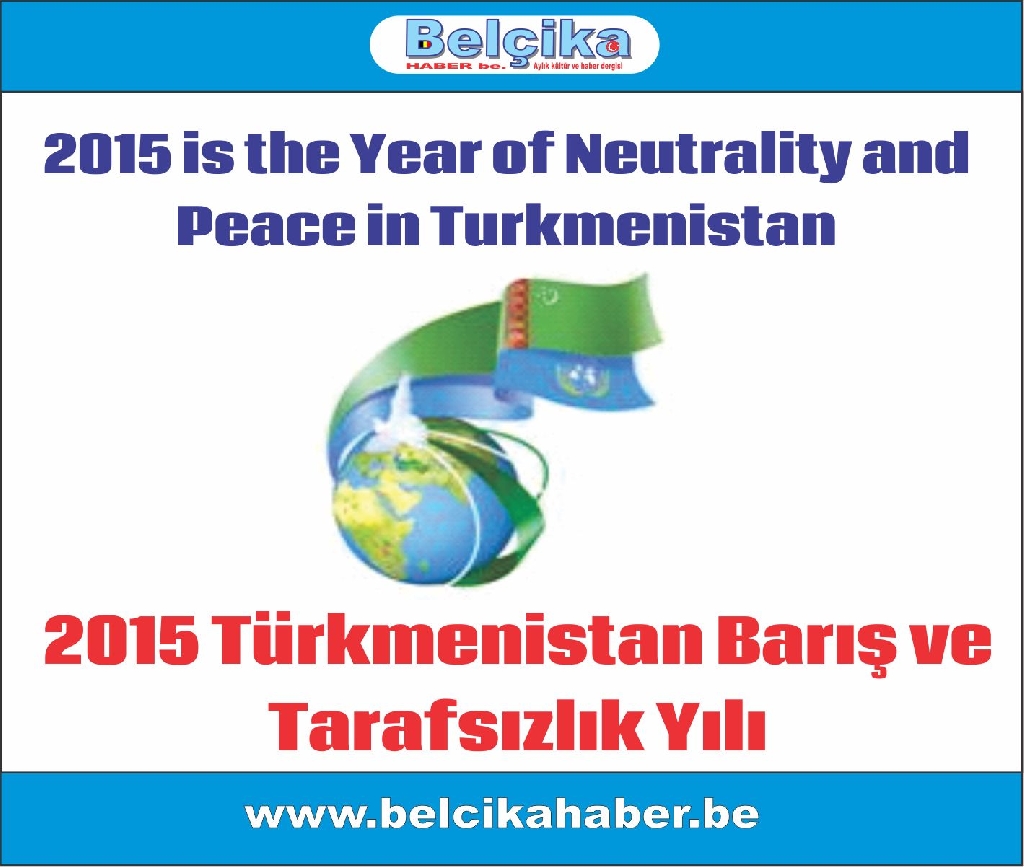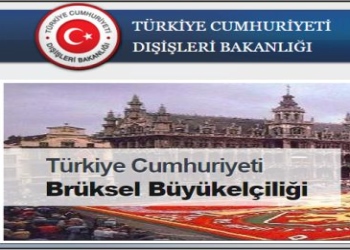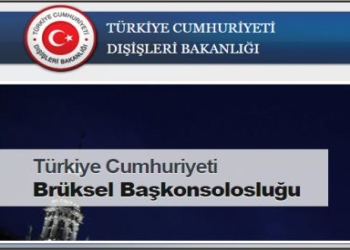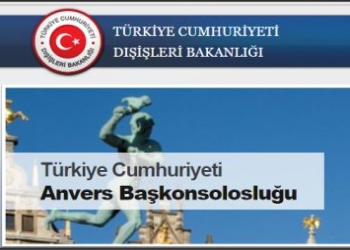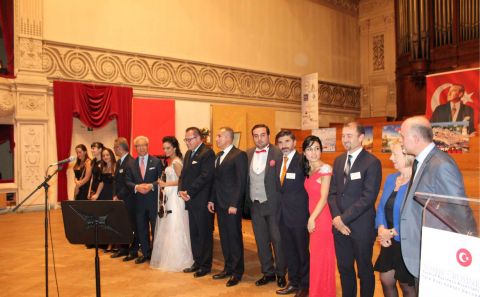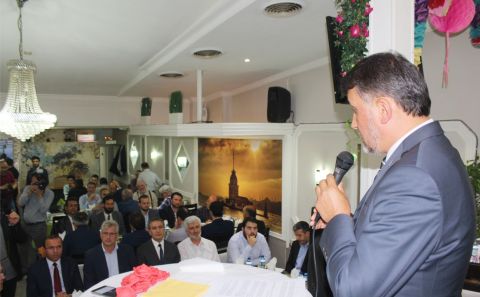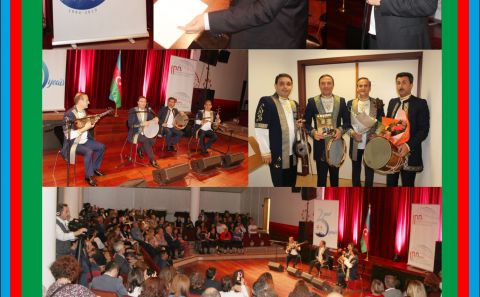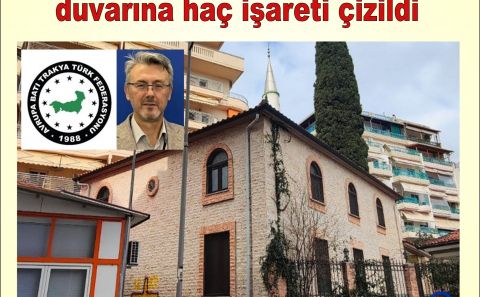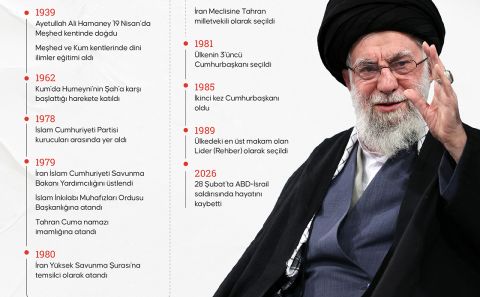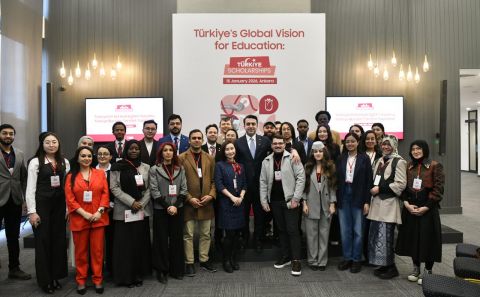2015 is the Year of Neutrality and Peace in Turkmenistan Bu yıl Türkmenistan'da '2015 Türkmenistan Barış ve Tarafsızlık Yılı' olarak kutlanmakta. Türkmenistan Büyükelçiliğinin gönderdiği konuyla ilgili ingilizce haberi sizlerle paylaşıyoruz.
2015 is the Year of Neutrality and Peace in Turkmenistan
20 October 2014, Resolution of the Council of Elders of Turkmenistan declared the year2015 a Year of Neutrality and Peace. The year 2015 marks the 20th anniversary of the recognition by the international community of the legal status of permanent neutrality of Turkmenistan in accordance with the United Nations General Assembly Resolution.
For the first time in the history of the United Nations General Assembly, the adoption of a Special Resolution on 12 December 1995, entitled "On the Permanent Neutrality of Turkmenistan" became a recognition of the peaceful foreign policy of this country and an approval of the authoritative role of Turkmenistan as a state that can make a worthy contribution to the peaceful development of international relations and ensuring universal security and steady progress.
Turkmenistan's neutrality is a phenomenon, which opened a new page in the history of neutrality as an institution of the systems of international relations.
a new page in the history of neutrality as an institution of the systems of international relations.
Turkmen neutrality model assumes that contemporary international law is the law of peace, and that constantly, a neutral state must adhere to its status not only in wartime, but also in peacetime. As a new phenomenon in
international legal practice, Turkmen neutrality suggested the international community to fundamentally change the global development paradigm, having become the basis of a new
concept of cooperation and achievement of world peace.
The unprecedented nature of Turkmenistan's neutrality is both in its international legal
registration approved and supported by the international community, and in practice of implementation of the foreign policy of the country and in a harmonious combination of national
approved and supported by the international community, and in practice of implementation of the foreign policy of the country and in a harmonious combination of national
and international interests, adjacent to its characteristic from the start .
.
Having made a historical choice in favour of neutrality, the young state has shown an example of a responsible approach not
only to the fate of its people, who were provided with favourable external conditions for development, but also to peace and security by creating a zone of stability and constructive
cooperation in the troubled Central Asian region.
The international legal status of permanent neutrality of Turkmenistan is enshrined in its current Constitution and the special resolution 50/80 of the General Assembly of 12 December
1995 "A Permanent Neutrality of Turkmenistan", and is supported by a number of documents of international organizations and bilateral agreements, statements, declarations, as well as
communiqués signed with other countries.
Thus, Article 6 of the Constitution states: "In its foreign
policy, as a full subject of the international community, Turkmenistan pursues principles of permanent neutrality, non-interference in the internal affairs of other countries, non-use of force and non-participation in military blocs and alliances, and promotion of peaceful, friendly and mutually beneficial relations with the countries of the region and countries around the world.
And UN General Assembly resolution, entitled "A Permanent Neutrality of Turkmenistan" says that the UN General Assembly "1. Recognizes and supports the status of permanent neutrality, declared by Turkmenistan; 2. Calls upon States Members of the United Nations to respect and support this status
of permanent neutrality, declared by Turkmenistan; 2. Calls upon States Members of the United Nations to respect and support this status of Turkmenistan and also to respect its independence, sovereignty and territorial integrity”.
of Turkmenistan and also to respect its independence, sovereignty and territorial integrity”.
In his letter to President Gurbanguly Berdimuhamedov on the occasion of the fifteenth anniversary of neutrality of Turkmenistan in December 2010, the UN Secretary-General said: "It was a historic day for the people of Turkmenistan and the unique achievement of the foreign policy of the Government of Turkmenistan. Turkmenistan has not only made a strategic decision to obtain the status of permanent neutrality, but also made a public commitment to develop harmonious relationships with neighbouring countries and to promote international peace and security
2010, the UN Secretary-General said: "It was a historic day for the people of Turkmenistan and the unique achievement of the foreign policy of the Government of Turkmenistan. Turkmenistan has not only made a strategic decision to obtain the status of permanent neutrality, but also made a public commitment to develop harmonious relationships with neighbouring countries and to promote international peace and security on a global scale".
on a global scale".
Time has shown loyalty of Turkmenistan to its international obligations, compliance of its neutral status with long-term goals of the Community of Nations, the interests of development
of countries and peoples of the world in peace and security .
.
During these years, Turkmenistan has actively contributed to the settlement of regional conflicts and providing a neutral platform for dialogue between the warring parties from different countries. On several occasions, Turkmen President has spoken about major initiatives on non-proliferation of weapons of mass destruction,
prevention of threat of conflict, as well as transformation of Central Asia and the Caspian region into a zone of peace and mutual cooperation.
Over the years, peacekeeping potential of the positive neutrality of Turkmenistan is only growing, finding new forms of practical implementation, setting new impulses and formats to the
constructive international cooperation. Peace, security and development - these are the key priorities of the foreign policy of Turkmenistan and the global goals of the international
community. And it objectively determines the growing cooperation between Turkmenistan and the UN and its representation in the key structures of the largest international organization, and
therefore means a political weight and influence in world affairs. The foreign policy of neutral Turkmenistan not only allows to actively integrating into geopolitical and geo-economic processes, but also serves as a catalyst for them, contributing to the creation of a new architecture of the world order.
Turkmenistan's neutrality is positive on quality, constant over time, a fundamental matter of fact and active at work. Today, it serves as a mechanism for combining geopolitical interests, an
important factor for providing a regional stability and establishment of a civilized dialogue in a constructive manner. This was evidenced by international initiatives of the country on protecting and strengthening world peace and security, cooperation in the energy sector and the transport
sector, humanitarian affairs and human rights, ecology and environmental protection, which were put forward at the 69th session of the UN General Assembly. These, in particular, are the ideas on founding a Subregional UN Disarmament Centre in Asia and conducting a Forum for Security and Peace in Central Asia.
A number of constructive ideas and proposals were announced by President of Turkmenistan at the summits in Dushanbe and Astrakhan. Thus, a whole range of initiatives of President Gurbanguly Berdimuhamedov at the Astrakhan Caspian Summit of heads of the Caspian countries is aimed at trying to make the Caspian Sea a zone of peace, an important component of
international strategic stability and security, an example of solving all issues by exclusively political and diplomatic means on the basis of respect for sovereignty and territorial integrity of
States.
Turkmenistan initiated development of important documents, such as the Agreement on the conservation and sustainable use of marine biological resources of the Caspian Sea and the Agreement on cooperation in the field of prevention and liquidation of emergencies in the Caspian Sea.
Today, one of the questions of the agenda is a preparation of a draft agreement on trade and economic cooperation among the littoral states and the proposal to establish a permanent Caspian
Economic Forum with holding its meetings alternately in the coastal cities of these states.
Stressing the growing role of the Caspian Basin as a major transport hub on the Eurasian
continent, the President outlined a strategic vision of creating a fundamentally new architecture of relations between the Caspian states in the transport sector, having suggested to make every effort to create new transport routes between the Caspian, Black and Baltic Seas in the near future, and work on issues of formation of transport network linking the Caspian region with the Middle East and the Mediterranean, South and South-East Asia. In this regard, it was proposed to develop a draft agreement on cooperation in the field of transport in the Caspian Sea and establish a Caspian regional transport and logistics center as part of a practical realization of such cooperation.
Initiatives put forward by a proposal of Turkmenistan related to the creation of international transport corridors of regional and continental levels and the proposal of Turkmenistan on the development of a Special inter-regional Programme on Transport
Development were announced by the Turkmen leader in the Summit of the Shanghai Cooperation Organization. One of the main aspects of cooperation between Turkmenistan and the SCO is a settlement of the situation in Afghanistan and in this regard, Turkmenistan has once again confirmed its readiness to put the peacemaking potential of its neutrality at the service of regional
peace and security.
Considering that for establishing a long-term peace, stability and predictability in the neighbouring country it is necessary to establish a broad inter-Afghan political dialogue, as a neutral state, Turkmenistan offered its political space for the organization of the negotiating process under the auspices of the United Nations.
Turkmenistan is in favor of a more focused and substantive interaction with various countries of the world and international organizations involved in regional issues in order to develop coordinated approaches to such issues as the fight against terrorism, extremism, organized crime and drug trafficking.
This position of the country was once again clearly expressed at the recent talks in Ashgabat between President Gurbanguly Berdimuhamedov, President of the Republic of Turkey, President of the Kyrgyz Republic and the Prime Minister of the Republic of Italy, where the Turkmen leader noted that the settlement of the situation in Afghanistan is to be achieved by peaceful political means, and that only by this way it is possible to achieve lasting peace and reconciliation on Afghan soil, create conditions for the transition of the neighbouring country to the creative processes in politics and economy, successful integration into the regional and world economy.
This will be facilitated, in particular, by a project on construction of an international gas pipeline “TAPI”, approaching the stage of its practical implementation, as well as a joint initiative to create a transport corridor to Afghanistan-Turkmenistan-Azerbaijan-Georgia-Turkey, born during the Turkmen-Turkish talks in Ashgabat, which in the future can be able to become an
integral part of modern transport and communication system in the direction of East-West.
Today, neutral Turkmenistan consistently promotes a fruitful relationship on the
interstate, regional and global levels by strengthening effective partnership in the framework of
such prestigious regional and international organizations as the United Nations, the European
Union, the Commonwealth of Independent States, the Organization for Security and Cooperation
in Europe, Non-Aligned Movement, and the Organization of Islamic Cooperation.
The upcoming Year of neutrality and peace, which will be marked by organising a large
celebration, will more fully disclose to the international community the value and the role of
Turkmen neutrality as an important factor for providing a regional security, stability and
sustainable development, all-round progress of the country and welfare of the people. In addition,
this will undoubtedly contribute to the growth of the international authority of Turkmenistan and
implementation of the strategy aimed at turning the country into one of the centers of political
power, economic stability and cultural attraction in Asia and around the world.
















